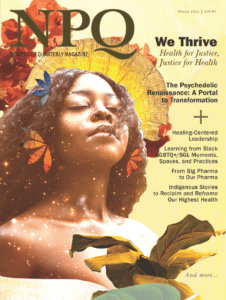
March 16, 2020; Guardian
The email messages and social media handwringing about COVID-19 began three weeks ago for the US literary community. Just days before the start of the largest annual literary conference in North America, presented by the Association of Writers and Writing Programs (AWP), the host city of San Antonio, Texas declared a public health emergency owing to COVID-19. Many attendees stayed home, while others showed up and made the best of a somewhat diminished networking, promotional, and learning experience.
Even in the early days of COVID-19 in the US—which now seem like the far-distant past—members of the literary community showed compassion and generosity. At first, they rallied around their own—the authors and small presses that were launching books at the conference, the panels with empty seats, the scaled-back book fair that typically generates sales and visibility for so many writers, literary journals, and small publishers. But since those first waves of kindness, the literary world has come up with countless ways of supporting readers as well as writers, even as libraries and independent bookstores have been shuttered, literary museums have closed indefinitely, and in-person writing workshops have been cancelled.
Sign up for our free newsletters
Subscribe to NPQ's newsletters to have our top stories delivered directly to your inbox.
By signing up, you agree to our privacy policy and terms of use, and to receive messages from NPQ and our partners.
Here are some of the more thoughtful and creative literary-minded responses NPQ has seen so far:
- If you are in Washington, D.C., and in need of some books to read while practicing social distancing, you can schedule a one-hour appointment for no more than four people to visit Capitol Hill Books. (The shop is currently closed except by appointment.) If you are in the UK, independent bookstores are offering free delivery by skateboard, pay-it-forward shelves to help others buy books, even phone calls to people feeling lonely as they self-isolate.
- If you are trying to keep young readers entertained at home, consider #WriteToAnAuthor. A long list of children’s authors has agreed to receive letters from and send responses to kids. Or treat your kids to a daily online “Lunch Doodle” with author Mo Willems, currently artist-in-residence at the Kennedy Center for the Arts.
- One small press sent this message to those on its email list: “If you are quarantined or ill as a result of the novel coronavirus, we will send a book from Matter Press completely FREE. Or if you just have the Coronavirus Blues.” Literary journals have been waiving fees (typically $3-$5, but they do add up) for authors to submit their work. And extending their deadlines for submissions. And offering free or reduced-priced issues to help readers pass the time.
- Many suggestions have been made for ways to support indie bookstores by purchasing from them online (instead of from you-know-where). Many of these small businesses struggle even when they are open for business. But because most of us go to these stores because we enjoy that in-person experience, we don’t always think to order from them online. Here’s a menu of ideas to support the indies. Meanwhile, the literary social media community has been working overtime to promote new books and their authors, whose readings and tours and other promotional opportunities have, at least for now, been shelved—again, hurting the indies who often host them.
- Literary museums like The Rosenbach in Philadelphia and the Museum of Literature Ireland (MOLI) in Dublin are finding ways to keep audiences engaged even while their buildings are closed. The Rosenbach is providing online access to parts of its collection and has just begun to offer online learning resources and curriculum-based activities for students in grades 3 to 12. MOLI has award-winning children’s book author Sarah Webb offering daily online writing games and prompts called “creative bursts” for young people.
- Hidden Timber Books is making its Zoom platform available for virtual author readings (even as some authors joke that social distancing guidelines can easily be followed at literary readings without making changes). The Scribd app is offering access to its online literary resources to anyone for free for 30 days.
- Mighty Writers, a Philadelphia-based writing education nonprofit, has had to cancel all its in-person programming, but is actively working to develop online resources and to facilitate virtual one-to-one feedback for young writers. In the meantime, they’re distributing free lunches each day at two of their sites, because so many children are at risk of missing meals they would normally receive at school. The Loft Literary Center in Minneapolis is also pivoting to online programming for now.
- And finally, while that AWP book fair wasn’t as well-attended as it would have been without COVID-19, the literary community joined forces and turned it into a virtual book fair, with social media support and special offers flying every which way during and even after the conference.
The literary community is but one slice of the broader arts sector being impacted by this pandemic. Performing arts organizations and artists and many other cultural institutions and their staffs are also being hurt financially, even as they strive to keep us all connected through the arts and creative activities. NPQ will continue to follow the arts sector through this challenging period.—Eileen Cunniffe













